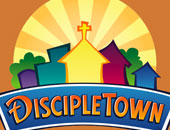Discipline Policies That Work (1 of 2)
Membership Level› Guest
Author/Source: Trisha Peach
Topic: Discipline
Almost every teacher in a church's children's ministry is looking for help to manage the classroom. Trisha Peach shares her best and time-tested discipline ideas.
Several years back, I visited a larger church to do a Sunday morning kid’s service. As excited as our team was, I couldn’t help but notice that no one else at this church seemed excited for this service at all. And no one was LESS excited for this kid’s service than that week’s kid’s ministry leader. You see, this church had a mandatory rotation of parents, and every parent had to “take their turn.” This mom, a busy attorney, rushed in late and was already visably irritated. She turned to me and said loudly enough for the kids to hear, “Well, in a minute they’ll be all yours. Watch out, they don’t listen to anyone. They’re out of control. In fact, they’re awful.” That last part stung me like lemon juice on a paper cut. This kid’s ministry obviously was suffering a few problems. In the next 5 minutes I knew exactly why. Pacing up and down the room, this sharp dressed lady began rolling up a newspaper saying, “You kids are so outta control. You are awful. If you start that junk again, you are gonna get wacked.” As my mouth fell open in horror, she began “wacking” the kids in the head that were talking in the back row. I turned to one of my teammates and mouthed the word, “lawsuit”. The beginning few minutes were so boring and unorganized that our team kept finding ourselves “misbehaving” ie talking, gesturing, writing on bulletins etc. Not shockingly, when our part of the service finally started, we didn’t have any discipline problems at all. We had a fantastic altar response time and really bonded with the kids while we were there. So what was so different in the way each part of the service went? Was it just because we were new and different? I don’t think so. This is a question I get asked a lot: “What is an effective discipline policy for our kid’s church/classrooms?” This is so important, because just one or two children acting out can distract and ruin the lesson for all of the children- not to mention drive your volunteer leaders to distraction!! You only have roughly an hour every week, so you need to make it count. How can you make sure you have their attention? How can you keep order?
Myth: “They’re all awful”
Truth: The time and age we live in is unique, with the Rise of ADHD, etc and many times these children live with a complete lack of home rules/discipline, child driven homes, underequipped and understaffed schools, and at times no enforceable limits. But these same modern age children are still craving rules, attention, and love. I highly recommend reading the books by Tim Elmore. Doctor Elmore presents a compelling case that our kids are growing up too fast AND too slow at the same time. We do not protect them fully from what will harm them (sex, drugs, death, violence, total independence) but we keep them from what would grow them in a good way (responsibility, hard work, leadership, sensible risk taking and dealing with failure).
What a challenge, and a great opportunity we have, to introduce them to a God of non negotiable rules, stability, and rewards. We do this best by modeling rules and order. The first step is for us in ministry to stop blaming the kids. You can’t control another person, you can only control you and your programming. And I have not found the myth of “they’re all awful” to be true yet. In reality, if the majority of the children in your group are distracted, off topic, disengaged and unenthusiastic, it is time to reexamine our programming and approach! Instead of blaming, yelling and threatening the kids, let’s craft an amazing experience they can’t take their eyes off of, a service they love being a part of!
So what are the best approaches to classroom discipline in a kid’s ministry setting? With over 600 children each week spread out over 5 campuses, 31 classrooms with 200+ volunteers, it became absolutely essential for us to have orderly, fun classrooms, so that everyone could hear the message and enjoy the experience. Here are the key points that helped our team develop our culture of classroom management:
1. Define the Goal. Imagine if you were going on a trip to Disney World. YAY! But then when you arrived, you see you are in the Badlands of South Dakota. Beautiful? Absolutely. Definitely a good place to visit. But as far as the trip’s objective goes, the trip was a failure, because you were supposed to end up at Disney World, and you didn’t get there. To determine if your Sunday morning programs are “winning”, you and every single one of the people on your team, need to KNOW all the way to their toes, what a winning Sunday really looks like. Is a win getting through the entire packet of curriculum for that day? Is a win getting more children to participate in prayer? Is it a win if the whole class prayed with a child who just lost a grandparent- even if you didn’t finish the curriculum for that day? We said yes. One of our mottos here is “People over Curriculum. Child over Curriculum.” So we have to continually train our team what a win looks like and what it does not. For us, it is not necessarily a win if the children stay silent and unmoving. It is not a win to just get through the material/service/hour. It is not a win to end early or have lots of games. For us, it IS a win if more children participate this week in worship, prayer, fine arts and group discussions. It is a win if they bring their friends. It is a win if they talk to us about serious life change- being more respectful to parents, committing to giving to others, refusing to lie anymore. It is a win when they “get it”. I think it’s a win when the parents have to stand in the back (and see what’s going on) and wait a couple of minutes because our services are going so well. It’s a win if parents notice the difference in their child and wants to get involved. What is the win for your kid’s ministry this Sunday? Do ALL of your leaders know the answer to that question? Your vision and goals will determine your discipline policy- not the other way around.
2. Plan plan plan. WAY ahead. Most discipline problems in the classroom are the direct result of not enough planning. You know when you are winging it, and the kids do too. As my mentor always said, “If you do not have a plan for them, they have a plan for you. And you are NOT going to like their plan.” If you are not clearly in charge, with a well thought out plan, the kids will sense that and act accordingly. And by planning, I do not mean simply reading out of a book. as we covered in the my first book, that is like opening a can of cold spagettios and plopping it out on a plate. Reading it out of a book is the lowest form of communication and will not keep anyone’s attention (adult or child). Would you like sitting in silence listening to someone read for an hour? Our service should be CRAFTED for maximum effectiveness; we have the most important message of all to give- EVER. It is a SIN to make the message of Jesus and His love for us….BORING. A. When you are planning, make sure there are opportunities for the children to participate (act out stories, build a project together). The more hands on activities you can add the better. B. Change up your activities around every 5 minutes- 10 minutes MAX. Studies show that children (and adults) have an attention span of about 10 min. Anything over that time frame without a change will likely be lost on them. C. You need to overplan. Do not be caught off guard by the adult’s getting out early. I usually plan at least 20 minutes of extra material, just in case. Worship and prayer are not extras; they are non-negotiables. But you can plan a craft, story, game etc for any extra time. D. If an activity is NOT working, not connecting- you can see the kids getting restless- then cut that story/activity short and go on to the next. No matter how “awesome” that element is, it is a waste if it is not connecting with the kids. If something IS really connecting, and you know you have the kids full attention, then feel free to extend that element a bit, or come back to it. Just make sure to leave them wanting more.
3. Don’t make church a punishment. How many times have we said/heard, “If you misbehave one more time, you are going to big church!” I cringe when I hear this, because we are making the other church service a punishment, a penalty for bad behavior, something to endure. These children begin to equate worshipping with their parents in a Sunday service as abnormal, and the result of being rejected. We have children leaving the church in droves by college ___________. Shouldn’t we be more conscious of creating excitement about worshipping alongside other Christians? Rather than a punishment, they should see themselves as a vital part of THE church- ONE church that expresses themselves in many ways- student ministries, outreach, community serving and more. These kids are part of the church NOW, and what is happening in the adult/family services should be exciting and relevant for them too. Have alternative ideas ready (sit in the hallway, sit in the back with a teacher, page their parent etc), but let’s stop making our church’s services a punishment.
4.Don’t make your senior the enemy. This goes hand in hand with not making the adult service a punishment. There is a problem if the only time the child sees the “boss pastor” is when they are in trouble. The lead pastor should be THEIR pastor also, and not just used as a disciplinarian. I do not tell a child, “If you misbehave, you’ll end up in the pastor’s office!” In fact, we have the lead pastor in a couple of times a year, to observe the kid’s programs, to speak to the kids and to have some fun with them. It’s their pastor too. Let’s not make the lead pastor someone who only interacts with you to come down on your failures. How do the kids in your ministry feel about YOUR lead pastor?












